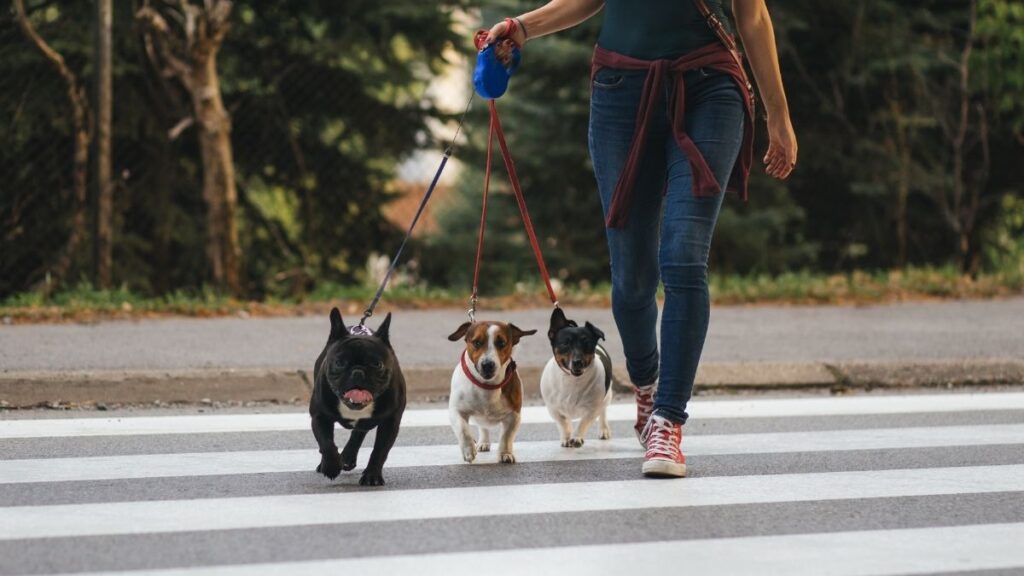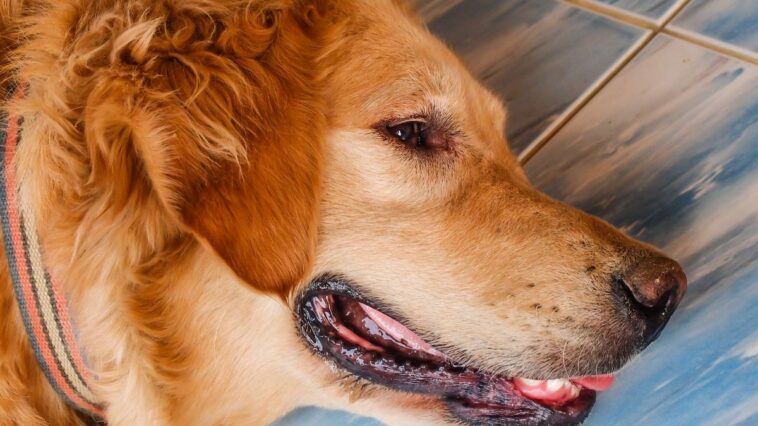Dogs are more than just pets. They are loyal companions, best friends, and family members. They are there for us through the good and bad, always offering unconditional love and support.
So when a beloved dog passes away, it can be a devastating experience that leaves us feeling lost, heartbroken, and alone. For many dog owners, the grief of losing a dog can be as intense and challenging as losing a loved one.
This article will explore the emotional impact of losing a dog and guide navigating this challenging experience. Whether you’re grieving the loss of a dog or want to understand the depth of this kind of loss, this article will offer insight and support.
Tips For Grieving the Loss of a Dog
The loss of a pet, especially a dog, can be an incredibly difficult experience to go through. Dogs are often viewed as more than just animals – they are family members, loyal companions, and trusted friends. Grieving their loss can be overwhelming, but some tips may help you cope with the heartbreak:
- Allow yourself to grieve
The first step in the grieving process is to acknowledge and accept your feelings. It’s okay to be sad, angry, or even numb. Grieving is a natural part of the healing process, and it’s crucial to allow yourself to feel the full range of emotions that come with losing your dog.
- Share your feelings with others
Talking about your feelings with friends and family members who understand your bond with your dog can be a great source of comfort. They can offer support and understanding during this difficult time. Alternatively, seeking support from a grief counselor or therapist can be helpful.
- Create a memorial
Creating a memorial or tribute to your dog can be a meaningful way to honor their life and keep their memory alive. This could include planting a tree, creating a photo album, or donating to a local animal shelter in your dog’s name.
- Take care of Yourself
Grieving can take a physical toll on your body, so taking care of yourself during this time is important. This means getting enough sleep, eating well, and engaging in activities that bring you joy and comfort. Exercise and spending time in nature can also be helpful.
- Don’t rush the grieving Process
Grieving takes time, and there’s no “right” way. It’s essential to allow yourself to go through the process at your own pace without feeling pressured to “move on” or “get over it.” Be patient with yourself, and know that healing takes time.
- Consider seeking professional Help
If you’re struggling to cope with your feelings, seek support from a grief counselor or therapist. They can provide a safe and supportive space to process your emotions and develop coping strategies.
Losing a dog can be one of the most difficult experiences in life, and the grieving process can be intense and overwhelming. Remember that you are not alone and that many resources are available to help you through this difficult time.
By allowing yourself to grieve, sharing your feelings with others, creating a memorial, taking care of yourself, not rushing the process, and considering seeking professional help, you can begin to heal and move forward in the wake of your dog’s passing.
Losing a Dog Can Be Like Losing a Person

Losing a dog can be a devastating experience that can feel similar to losing a person. For many pet owners, dogs are more than just pets – they are beloved companions and family members. The bond between a dog and its owner is often strong and deeply emotional, and losing it can be harrowing.
Losing a dog can feel like losing a person because dogs are often an integral part of our daily lives. They may be our constant companions, following us around the house and taking us on walks and adventures. They may also provide comfort and emotional support, always there to listen and offer unconditional love.
The loss of a dog can also trigger feelings of grief and sadness similar to those experienced when losing a human loved one. Pet owners may feel a sense of emptiness, loneliness, and heartbreak after their dog has passed away. They may also experience physical symptoms of grief, such as loss of appetite, insomnia, and fatigue.
The grieving process after losing a dog can be similar to grieving a human loved one. Pet owners may go through the stages of grief, including denial, anger, bargaining, depression, and acceptance. They may also experience feelings of guilt, wondering if they could have done more to prevent their dog’s death.
For some pet owners, the loss of a dog can even trigger a mental health condition known as complicated grief. This form of grief is characterized by intense and prolonged symptoms, such as depression, anxiety, and difficulty functioning in daily life.
Losing a dog can be like losing someone in many ways. The bond between a dog and its owner can be strong and deeply emotional, and losing that bond can be excruciating. If you are grieving the loss of your dog, it’s important to remember that you are not alone and that resources are available to help you cope with your feelings.
Defeating The Heartbreak of Losing Your Dog
Losing a dog can be an incredibly difficult experience that can leave pet owners feeling heartbroken and overwhelmed. However, some strategies may help you defeat the heartbreak and cope with the loss of your furry friend:
- Focus on the good times
One way to defeat the heartbreak of losing your dog is to focus on your shared happy memories. These memories can help you remember the love and joy your dog brought into your life. Think about the fun adventures you went on, the silly moments you shared, and the times your dog made you smile or laugh.
- Practice self-care
Grieving the loss of a dog can take a physical and emotional toll on your body. It’s important to take care of yourself during this time by getting enough sleep, eating well, and engaging in activities that make you feel good. Taking care of yourself can help you cope with the stress and sadness of losing your dog.
- Connect with others who understand
Talking to others who have lost a pet can be a helpful way to connect with people who understand what you’re going through. There are many support groups and online forums where you can share your feelings and experiences with others who have lost a dog. You can also talk to friends and family members who have had pets and can offer understanding and support.
- Create a memorial
Creating a memorial for your dog can be a meaningful way to honor their memory and celebrate their life. This could include planting a tree, creating a photo album, or donating to a local animal shelter in your dog’s name. A memorial can help you feel like your dog is still a part of your life, even if they’re no longer physically with you.
- Seek professional help if needed.
If you’re struggling to cope with your feelings, it may be helpful to seek professional help. A grief counselor or therapist can provide a safe and supportive space for you to process your emotions and develop coping strategies. They can also help you work through any complicated grief or depression that may arise due to your loss.
The Grieving Process After the Loss of a Pet

The loss of a pet can be a deeply emotional and difficult experience, and the grieving process can vary depending on the individual and their relationship with their pet. Here are some common stages that people may go through when grieving the loss of a pet:
- Denial: This is often the initial stage of grief, where the individual may struggle to accept the reality of their pet’s death. They may find themselves denying that their pet is gone or hoping it’s just a bad dream.
- Anger: After the initial shock wears off, it’s common for individuals to feel angry about their pet’s death. They may feel angry at themselves for being unable to save their pet or at the circumstances surrounding their pet’s death.
- Bargaining: In this stage, individuals may try to bargain with a higher power, hoping that their pet can be brought back to life or that the circumstances of their death can be reversed.
- Depression: As the reality of their pet’s loss sets in, individuals may feel deep sadness and depression. They may struggle with feelings of loneliness and emptiness and withdraw from social interactions.
- Acceptance: In this final stage, individuals come to terms with their pet’s death and find ways to move forward. They may focus on the positive memories they shared with their pet and find ways to honor their pet’s memory.
It’s important to note that these stages may not always occur linearly, and individuals may cycle through different stages at different times. Additionally, some individuals may experience complicated grief or other mental health concerns after losing a pet, which may require additional support and intervention.
If you’re grieving the loss of a pet, taking care of yourself and seeking support from loved ones or a mental health professional is essential. Remember that it’s okay to feel a wide range of emotions during this time and that everyone grieves differently. With time and support, finding ways to cope with the loss of your beloved pet is possible.
Conclusion
Losing a dog can be a challenging experience that can impact our emotional well-being. For many dog owners, their furry companions are not just pets but essential family members.
Losing a dog can be just as hard as losing a loved one, and taking the time to grieve and process this kind of loss is essential. While there is no “right” way to cope with the loss of a dog, finding support through loved ones, pet loss support groups, or therapy can be incredibly helpful in navigating the grieving process.
Remember to be kind to yourself and allow yourself the space to honor your pet’s memory in a meaningful way. The pain of losing a dog can ease with time, but the love and memories will always remain.




